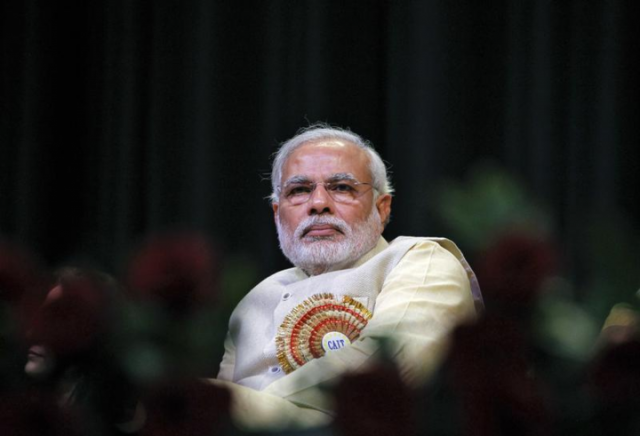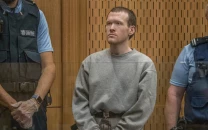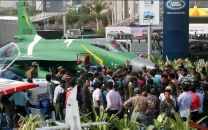PM Narendra Modi calls on celebrities to ‘inspire’ Indians to vote in 2019 general elections
In 29 rapid-fire tweets, Modi tagged cricket stars, Bollywood actors to inspire others to exercise voting rights

In 29 rapid-fire tweets, Modi tagged cricket stars Virat Kohli and Mahendra Singh Dhoni, and Bollywood actors Aamir Khan and Vicky Kaushal, asking them to inspire others to exercise their voting rights.
Voting is not only a right but it’s also a duty.
— Narendra Modi (@narendramodi) March 13, 2019
Dear @BeingSalmanKhan and @aamir_khan,
It is time to inspire and motivate youth in your own Andaz to vote so that we can strengthen Apna Democracy & Apna country.
“Dear @msdhoni, @imVkohli and @ImRo45. You are always setting outstanding records on the cricketing field but this time, do inspire the people of India to set a new record of high voter turnout in the upcoming elections,” he wrote in one post. “When this happens, democracy will be the winner!”
Urging @SrBachchan, @iamsrk and @karanjohar to creatively ensure high voter awareness and participation in the coming elections.
— Narendra Modi (@narendramodi) March 13, 2019
Because...its all about loving your democracy (and strengthening it). :)
Modi, who has 46.3 million Twitter followers, also reached out to his political rivals, including Rahul Gandhi who heads the centre-left Congress party.
“A high turnout augurs well for our democratic fabric,” he said in a message marked to Gandhi.
My fellow Indians,
— Narendra Modi (@narendramodi) March 13, 2019
Urging you all to strengthen voter awareness efforts across India.
Let us all ensure maximum number of Indians come out to vote in the 2019 Lok Sabha elections.
Elections in the world’s largest democracy have long been plagued by lack of trust in its polling procedures, with the Election Commission recently launching new measures aimed at combating issues seen in the previous 16 ballots.
The media plays a vital role in a democracy.
— Narendra Modi (@narendramodi) March 13, 2019
It is also a strong influence on people's minds.
I request @Sanjaygupta0702, @aroonpurie and @18RahulJoshi to work towards greater voter awareness and registration that ensures an impressive turnout at the hustings.
Criminal candidates
In the outgoing parliament, there were 186 lawmakers facing criminal charges or being investigated – some 112 of them involving cases such as murder or rape.
This time, candidates have to issue three newspaper and TV advertisements detailing any charges they are facing in the constituency where they’re standing.
Candidates have to declare income and tax returns for the past five years – the information is made public before the vote – as well as submit details any of the assets and liabilities in their name abroad.
Citizen monitors
Live webcam broadcasts will monitor 5,000 polling stations and all counting halls in real time.
A smartphone app will allow citizens to record any polling misconduct or malpractice such as distributing liquor or drugs – a common method of vote-buying.
The complainant, who can remain anonymous, can upload a photo or video to the app and officials are obliged to respond within 100 minutes.
A toll-free helpline for voter information, feedback and complaints will also operate for the first time.
Social media
Candidates have to declare their social media accounts in legal filings when they apply to become an election candidate. This is aimed at monitoring and ending the misuse of social media during the polls, in a country where online misinformation is rife.
India is Facebook’s biggest market, with smartphone use exploding since the last election thanks to the world’s cheapest data tariffs.
Political advertising on social media will be considered a formal part of the campaign, unlike in 2014, and subject to rules and regulations.
Facebook India has said it will display “published by” or “paid for by” disclaimers to political advertising on Facebook and Instagram to increase transparency.
Mug shots
With an estimated 300 million illiterate adults across India, photos of candidates will now feature alongside party symbols on electronic voting machines.
The devices have been dogged by claims they can be hacked, but will now print out a chit for each voter, who can confirm the details before dropping it in a sealed box inside the polling booth. Random matching of the chits and numbers of votes on the machines should verify no tampering was done.
Vehicles transporting the voting machines will also be fitted with GPS devices.
Transgender voters
Nearly 39,000 voters have registered as “third gender”, the first time they have been able to after a 2014 Supreme Court ruling that formally recognised transgender Indians.
There are around 500,000 transgender people in India, but previously they had to register as either a man or woman.



















COMMENTS
Comments are moderated and generally will be posted if they are on-topic and not abusive.
For more information, please see our Comments FAQ